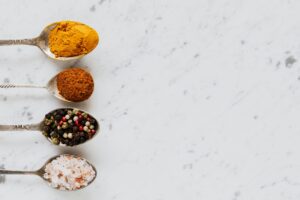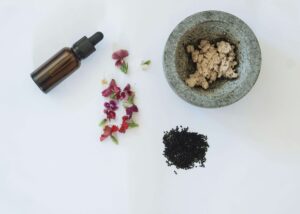Cruelty-Free Solutions for a Healthier You

Chronic inflammation can be a relentless foe, disrupting our well-being and impacting everything from joint discomfort to digestive issues. While conventional anti-inflammatory medications offer relief, many individuals seek natural, cruelty-free alternatives. Fortunately, nature provides a treasure trove of plant-based ingredients with the potential to effectively combat inflammation. Let’s embark on a journey to explore the exciting world of cruelty-free anti-inflammatory supplements and discover how they can empower your fight against chronic inflammation.
Nature’s Arsenal Against Inflammation
Our bodies rely on a healthy inflammatory response to fight infection and heal injuries. However, chronic inflammation, when the inflammatory response persists even in the absence of a threat, can wreak havoc on our health. Here, some plant-based powerhouses emerge as potential allies in the battle against chronic inflammation:
Curcumin (from Turmeric): This golden wonder boasts well-documented anti-inflammatory properties. Studies suggest curcumin may be as effective as some over-the-counter anti-inflammatory drugs (NSAIDs) for managing pain and inflammation. However, curcumin has lower bioavailability (absorption by the body).
Boswellia: Revered in Ayurvedic medicine for centuries, Boswellia is a resin extracted from the Boswellia serrata tree. Research suggests it may be beneficial for managing joint discomfort and inflammation associated with osteoarthritis.
Bromelain (from Pineapple): This enzyme found in pineapples delivers a unique anti-inflammatory punch. Bromelain works by breaking down inflammatory proteins in the body, potentially reducing pain and swelling. However, its effectiveness may be limited due to its breakdown in the digestive system.
Ginger: This versatile root offers a multitude of health benefits, including anti-inflammatory properties. Ginger may be particularly helpful in managing pain and inflammation associated with osteoarthritis and muscle soreness.
Important Note: While generally safe, it’s always wise to consult with a healthcare professional before starting any new supplement regimen, especially if you have any underlying health conditions or take medications.
Optimizing Your Anti-Inflammatory Journey
While cruelty-free anti-inflammatory supplements offer exciting potential, they work best when integrated into a holistic approach to managing chronic inflammation. Here are some key strategies to consider:
Prioritize Ethical Sourcing: Look for reputable brands certified cruelty-free by organizations like Leaping Bunny or PETA. This ensures the supplements are not tested on animals and align with your ethical values.
Embrace a Balanced Diet: Nourish your body with a diet rich in anti-inflammatory foods like fruits, vegetables, and omega-3 fatty acids. These foods provide essential nutrients that can help regulate inflammation and promote overall well-being.
Regular Exercise is Key: Physical activity has numerous health benefits, including reducing inflammation. Aim for at least 30 minutes of moderate-intensity exercise most days of the week.
Manage Stress: Chronic stress can exacerbate inflammation. Explore stress-management techniques like yoga, meditation, or deep breathing exercises to promote relaxation and support your anti-inflammatory efforts.
Quality Sleep is Essential: Aim for 7-8 hours of quality sleep each night. Sleep deprivation disrupts the body’s natural anti-inflammatory processes and can worsen inflammation.
By combining these strategies with cruelty-free supplements, you can create a powerful synergy to optimize your anti-inflammatory journey and promote long-term well-being.
Fueling Your Anti-Inflammatory Fight
Food can be a powerful weapon in your anti-inflammatory arsenal. Here are some dietary strategies to consider alongside your cruelty-free supplements:
Colorful Fruits and Vegetables: These vibrant sources of antioxidants are nature’s anti-inflammatory powerhouses. Aim for a rainbow on your plate and include berries, leafy greens, and bell peppers in your diet.
Omega-3 Fatty Acids: Found in fatty fish like salmon and sardines, or in flaxseeds and chia seeds, omega-3s possess potent anti-inflammatory properties. Include these healthy fats in your diet to support your anti-inflammatory efforts.
Healthy Fats: Opt for healthy fats like those found in olive oil, avocados, and nuts. These fats can help regulate inflammation in the body and contribute to a balanced diet.
Limit Processed Foods and Added Sugars: Processed foods and added sugars can promote inflammation in the body. Minimize your intake of these items and focus on whole, unprocessed foods to support your anti-inflammatory goals.
By incorporating these dietary strategies, you can provide your body with the essential nutrients it needs to combat inflammation naturally and enhance the effectiveness of your cruelty-free supplements.
The Art of Balance: Weighing Efficacy and Ethics
Choosing cruelty-free anti-inflammatory supplements empowers you to address your health concerns while aligning with your ethical values. However, it’s important to understand the potential trade-offs involved:
Potency: While cruelty-free supplements offer significant anti-inflammatory potential, they may not always be as potent as conventional medications in the short term. Consistency and a holistic approach are crucial to maximize their effectiveness.
Dosage and Research: Research on the optimal dosage of some cruelty-free supplements for specific conditions is still ongoing. Consulting with a healthcare professional to determine the appropriate dosage for your individual needs is recommended.
Long-Term Effects: Long-term studies on the efficacy and safety of some cruelty-free supplements are limited. While generally safe, it’s always best to discuss any new supplement with your doctor, especially if you have pre-existing health conditions.
Remember: Open communication with your healthcare professional is key to navigating the landscape of cruelty-free anti-inflammatory supplements and ensuring they complement your overall well-being strategy.

Your Roadmap to Success: Frequently Asked Questions
Here are some frequently asked questions about cruelty-free anti-inflammatory supplements:
- Q: Are cruelty-free anti-inflammatory supplements a magic bullet for managing chronic inflammation?
A: No, cruelty-free supplements are not a quick fix. They work best when integrated into a holistic approach that includes a healthy diet, exercise, stress management, and quality sleep.
- Q: Can cruelty-free anti-inflammatory supplements interact with medications?
A: Some supplements may interact with medications. Always consult with a healthcare professional before starting any new supplement regimen, especially if you take medications.
- Q: Where can I find high-quality cruelty-free anti-inflammatory supplements?
A: Look for reputable brands certified cruelty-free by organizations like Leaping Bunny or PETA. You can find these supplements at health food stores, online retailers, and some natural grocery stores.
By understanding the potential benefits and considerations surrounding cruelty-free anti-inflammatory supplements, you can make informed choices for your health and well-being. Remember, a holistic approach and open communication with your healthcare professional are key to unlocking the full potential of these natural allies in your fight against chronic inflammation.
Now it’s your turn! Share your experiences with cruelty-free anti-inflammatory supplements or your favorite anti-inflammatory recipes in the comments below. Let’s create a supportive community where we can learn from each other and prioritize both health and compassion!




